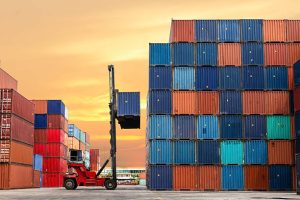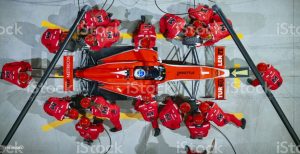This is new blog-Don’t miss out!
The informational component

Global supply chain blogs
About the Author
 Vivek Sood: Sydney based managing director of Global Supply Chain Group, a strategy consultancy specializing in supply chains. More information on Vivek is available on www.linkedin.com/in/vivek and more information on Global Supply Chain Group is available www.globalscgroup.com
Vivek Sood: Sydney based managing director of Global Supply Chain Group, a strategy consultancy specializing in supply chains. More information on Vivek is available on www.linkedin.com/in/vivek and more information on Global Supply Chain Group is available www.globalscgroup.com
Vivek is the Managing Director of Global Supply Chain Group, a boutique strategy consulting firm specialising in Supply Chain Strategies, and headquartered in Sydney, Australia . He has over 24 years of experience in strategic transformations and operational excellence within global supply chains. Prior to co-founding Global Supply Chain Group in January 2000, Vivek was a management consultant with top-tier strategy consulting firm Booz Allen & Hamilton.
Vivek provides strategic operations and supply chain advice to boards and senior management of global corporations, private equity groups and other stakeholders in a range of industries including FMCG, food, shipping, logistics, manufacturing, chemicals, mining, agribusiness, construction materials, explosives, airlines and electricity utilities.
Vivek has served world-wide corporations in nearly 500 small and large projects on all continents with a variety of clients in many different industries. Most of projects have involved diagnostic, conceptualisation and transformation of supply chains – releasing significant amount of value for the business. His project work in supply chain management has added cumulative value in excess of $500M incorporating projects in major supply chain infrastructure investment decisions, profitable growth driven by global supply chain realignment, supply chain systems, negotiations and all other aspects of global supply chains.
Vivek has written a number of path breaking articles and commentaries that are published in several respected journals and magazines. Vivek has spoken at several supply chain conference, forums and workshops in various parts of the world. He has also conducted several strategic workshops on various aspects of supply chain management. He received his MBA with Distinction from the Australian Graduate School of Management in 1996 and prior to these studies spent 11 years in the Merchant Navy, rising from a Cadet to Master Mariner.
More information on Vivek is available on www.linkedin.com/in/vivek and more information on Global Supply Chain Group is available on www.globalscgroup.com
Introduction
In business, the informational component is a critical part of any transaction. It provides important data and details necessary for making informed decisions to move forward with an action or process. Whether it is financial, legal, or market-related information, each piece of information needs to be considered and evaluated to ensure a successful outcome. To make sure that all relevant information is available and properly utilized, a comprehensive understanding of this key element must first be acquired.
As its name implies, the informational component focuses on providing informative material related to whatever topic or objective is being addressed.

Content
The informational component is an important aspect that should not be overlooked when considering the overall success of any endeavor. Achieving a well-informed and educated status is essential for the successful delivery of information to ensure that objectives are reached effectively. This is true whether the goal is personal or professional; knowledge of relevant facts gives one a competitive edge over those who lack access to such information or have failed to learn it. In addition, having an accurate understanding of data allows an individual to make better decisions based on current knowledge, resulting in more favorable results in both short and long-term scenarios. Therefore, it can be seen that having access to reliable sources of information and taking the time to learn them are critical steps toward achieving desired outcomes.
The informational component of any project serves a vital purpose. Whether it is providing knowledge to stakeholders, investors, or the general public, the information must always be organized and accurate. The information allows decision-makers to make informed decisions about a project due to its ability to inform and persuade. It can also reduce many of the risks associated with making large investments. This is why it’s important for organizations to thoroughly research and acquire all necessary data before they begin their projects.
In addition, having an adequate amount of information before starting a project helps eliminate potential problems in the future. The data collected helps ensure that all involved parties are in agreement on objectives and strategies; this helps promote efficient collaboration throughout the entire process.
The informational component of anything is a double-edged sword; while it has its many advantages, it also comes with its fair share of cons. Firstly, there is the issue of data security and privacy. This is a major concern since the presence of too much information out in the open makes it easier for anyone to access or use it without authorization. Secondly, having too much information can be overwhelming as well; when presented with masses of data, one might feel daunted and confused instead of enlightened. Lastly, aside from security and overwhelming issues, another disadvantage that comes with an overload of information is that it may not always be accurate or up to date; some sources may be unreliable and lead to wrong decisions being made due to inaccurate data.
Example:

The informational component, as it pertains to the personal essay, is of immense importance. It provides key insight into the individual and allows the reader to better understand their perspective, experience, opinions, and goals. For a personal essay to be effective in conveying these aspects, the information must be presented clearly and concisely. As an example of this concept in action, consider a student writing about their decision to pursue a career in biology – they would have to effectively explain why they’ve chosen such a path and what qualifications or skills they possess that would make them successful. Furthermore, if relevant experience has been gained along the way it should also be highlighted so that readers can appreciate where these ambitions stem from. Ultimately, this type of information not only serves as evidence for why certain decisions were taken but also helps show how well-prepared someone is for the challenges ahead.
Conclusion
Throughout this course, we have explored the multiple facets of the informational component. We have discussed the importance for businesses to provide accurate, up-to-date information to their customers and potential customers. We have discussed how providing quick access to relevant information can lead to improved customer satisfaction and increased sales. Additionally, we learned about how technology can be used to create a user-friendly experience that encourages the exploration of new products, services, and content within companies’ websites or applications.
Having an informational component as part of any business strategy is essential in today’s modern world. It helps businesses remain competitive by ensuring they are providing their customers with all the necessary details they need when considering a purchase decision or researching a service offering.
Introducing.....

The global supply chain of products is an immense and complex system. It involves the movement of goods from the point of origin to the point of consumption, with intermediate steps that involve resources, materials and services to transport them. A supply chain encompasses activities such as purchasing, production, distribution and marketing in order to satisfy customer demands. Companies rely on a well-managed supply chain to meet their business goals by providing quality products and services at competitive prices.
Efficiently managing a global supply chain requires considerable effort, particularly when dealing with multiple suppliers located around the world. Complex logistics tracking systems are needed to monitor product movements from one place to another. Technologies such as artificial intelligence (AI) can help companies keep track of shipments across different locations for greater visibility into their processes.
what did Our Reader say?

GARRY BADDOCK
Chief Operating Officer Graphite Energy
I have experience with many of the well-known top-tier strategy firms but chose Global Supply Chain to support me on my supply chain projects. They always meet and exceed my expectations due to the quality of the work, the ability to work collaboratively with internal teams, and the flexibility to adjust the project approach when required.

PHILLIPPE ETTIENNE
CEO - Large Global transnational corporation From: FOREWORD - OUTSOURCING 3.0
When I engaged Vivek’s services for supply chain transformation in one of the companies I was heading, we expected the careful and methodical approach that he was famous for... I was pleased to note that the original target set for 3 years was surpassed by almost 70% in just 18 months.

TONY FEDOROWICZ
Vice-President Supply Chain Asia Pacific
I have used their services for several business transformations and workshops in many companies. Each time an outstanding workshop and project result was delivered ensuring the success of the business transformation project. Savings surpassed $25 Million per annum in one case. Very powerful ideas, were implemented very diligently.

Jean-Briac Le Dean
Co-Founder & Agen
Vivek is a very collaborative and open leader who leads teams by example. Whether internal teams, or clients teams, all are impressed by his intensity, energy level and drive to make things a little better.

Lorna Calder Johnson
Omni-Channel Product Marketing
P & L Executive
Vivek's transformation expertise is apparent from his results and dedication to operations and supply chains. His strategic expertise, knowledge and network make him a standout even among an excellent team.
Related Posts
Click below to see related posts.

The Impact of Plummeting Shipping Container Prices Across Industries
Explore the far-reaching consequences of plummeting shipping container prices on diverse industries, revealing the intricate connections shaping global trade, supply chains, and economic landscapes.

Race Day Logistics: Intricacies of Pit Stop
Explore the race day’s heartbeat: the art of pit stops. Uncover the intricate logistics orchestrating split-second tire changes, refuels, and strategy adjustments that define Formula 1’s high-speed drama.

Mastering Travel Logistics in Formula 1 Racing
Discover the art of flawless travel logistics in the high-speed world of Formula 1. Uncover how precision planning and real-time coordination keep teams on track across the global circuit.
